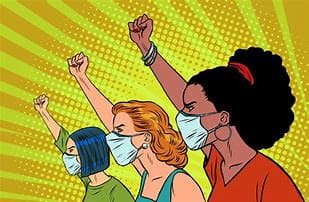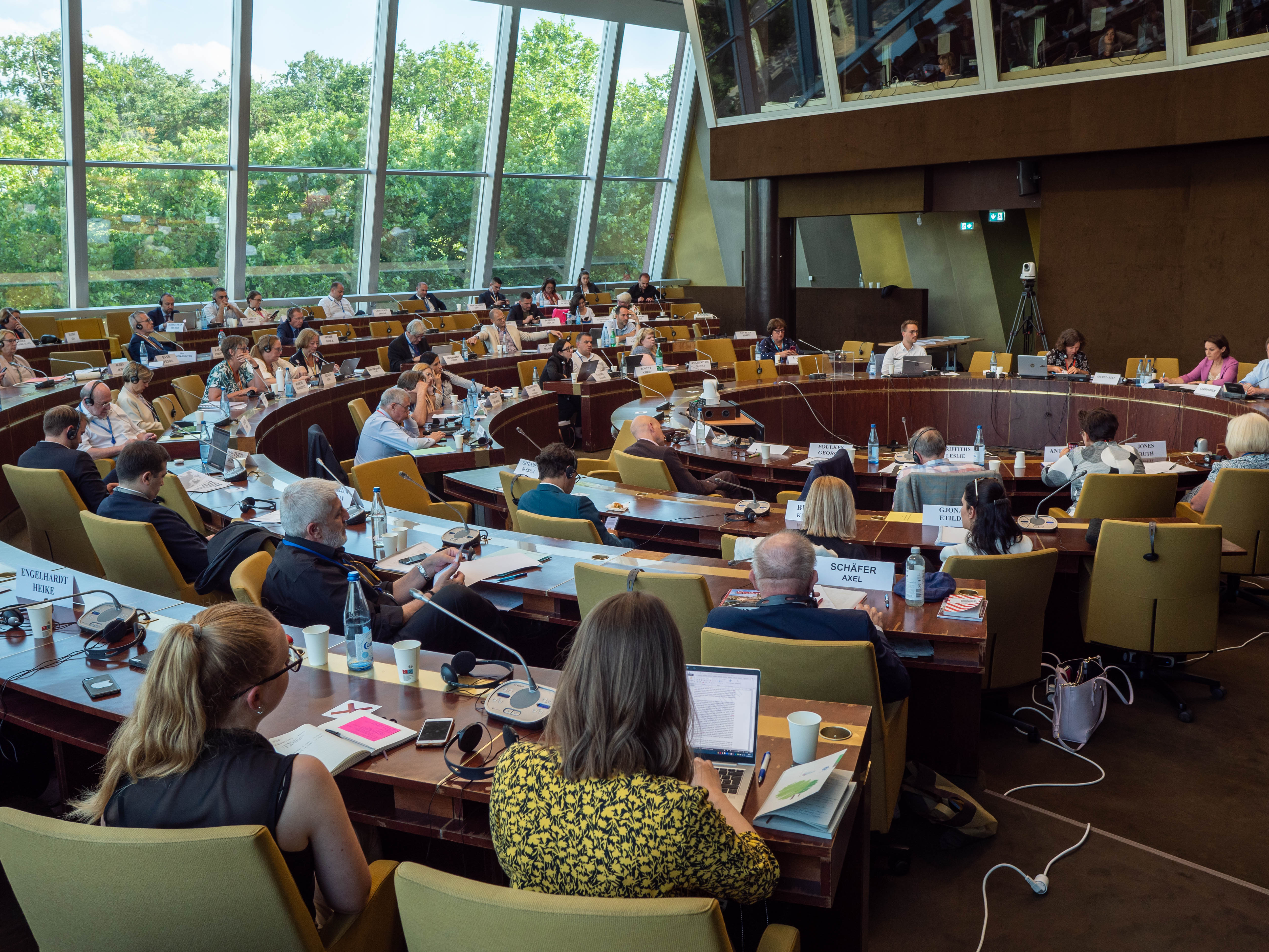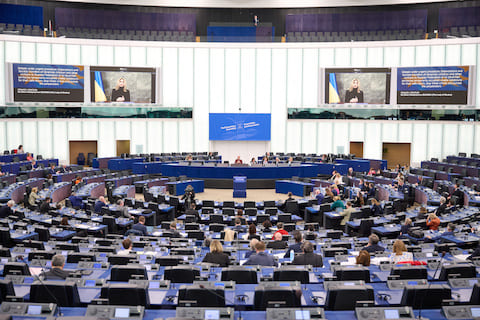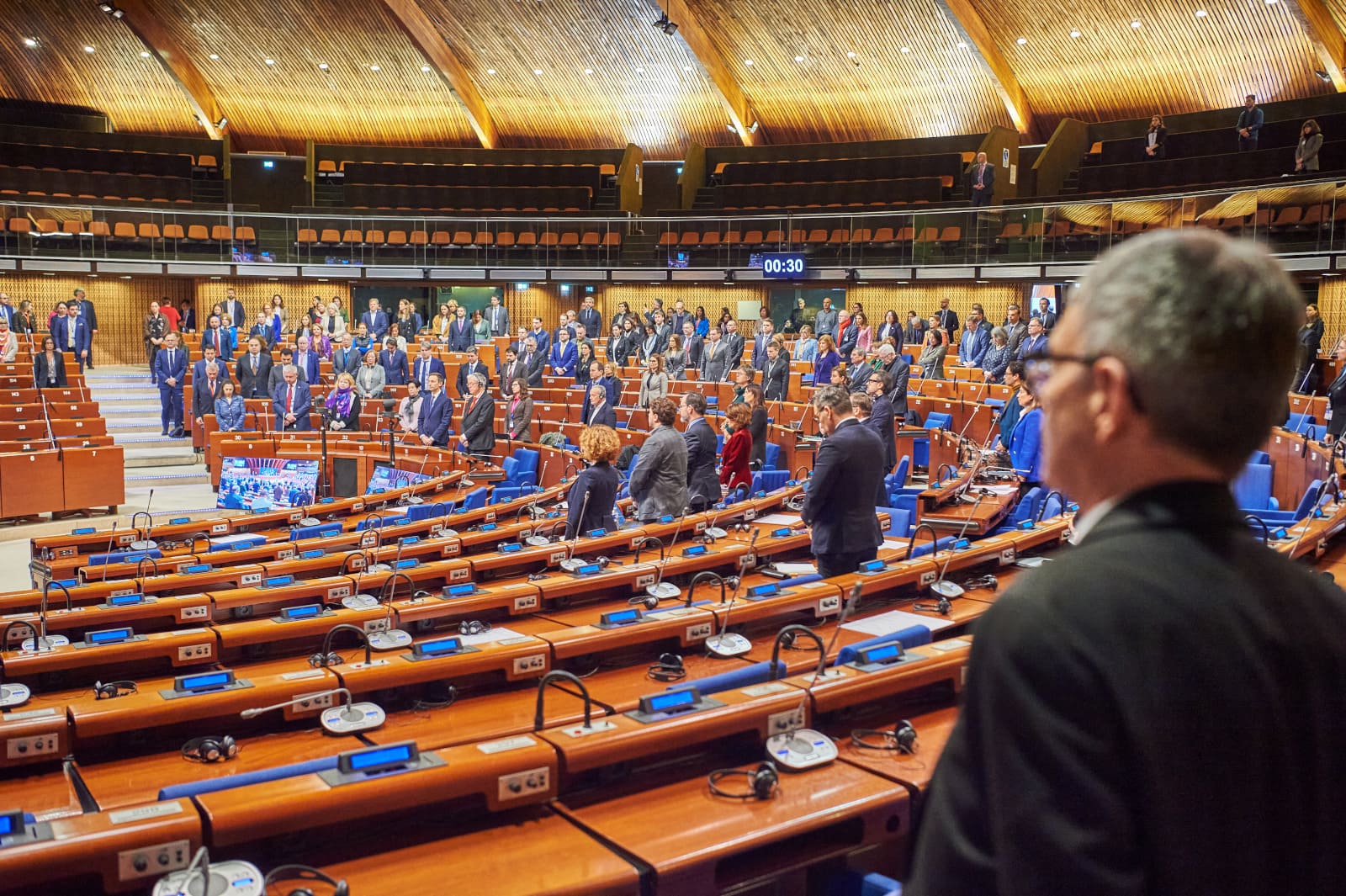
Since March 2020, all members states of the Council of Europe, though at differing degrees, have been adjusting their societies to exceptional sanitary restrictions amid the direct health and indirect economic and social effects of the COVID-19 pandemic. While every individual has felt the impact; the pandemic has exacerbated the already existing gender inequalities.
Our Organisation, including the Parliamentary Assembly of the Council of Europe (PACE), has on numerous occasions underlined that human rights are more important than ever in times of crisis. The Women of the Socialists, Democrats and Greens Group, would like to highlight that in times of crises women’s rights in several fields are at higher risk than ever, and should be protected consequently as the cornerstone of human rights. We urge all PACE members to stand up with us and join our call towards all national authorities to comply with the conventions and provisions realised by the Council of Europe.
A major global concern deepened by the COVID-19 pandemic is the increase of the domestic violence against women. Gender based violence is a pandemic too, and should also be treated as such, by taking all necessary measures to end it. The Istanbul Convention of the Council of Europe provides the much-needed, effective and well-elaborated legal framework. It gives the responsibility of prevention of and protection from violence to the member states. We, as the Women of Socialists, Democrats and Greens Group strongly call the member states who haven’t yet done so, to ratify the Istanbul Convention as soon as possible. We invite all parties who have ratified it to fully implement the Istanbul Convention. Finally, we strongly urge for ending any discussion of leaving the Istanbul Convention among member states and call for all parliamentarians and stakeholders to continue raising awareness on the fundamental key-solutions elaborated in the Istanbul Convention.
Furthermore, the COVID-19 crisis deepened the already existing social and economic inequalities for women and young girls. The lockdown period mandated increased domestic work for women, forcing many to leave aside their professional careers. Unpaid work realised by women has dramatically increased. Women are finding it more difficult to participate in the labour force. Many of the already unequal labour market outcomes women face due to structural problems, have been aggravated by the pandemic; women earn less, realise more insecure jobs and are in more precarious positions. We urge our national authorities to take all possible initiatives to promote and fulfil the provisions indicated by the European Social Charter provided by the Council of Europe, which provides a strong framework in dealing with the enduring effects of the crisis, with a sustainability focus.
In addition, the lockdown measures related to COVID-19 have affected the mental health especially of women and girls. Anxiety, increased stress and depression are among the silent effects of this pandemic. Research in the UK demonstrated that the mental well-being of women has declined by twice as much as men’s during the last months. The gender gap in well-being is highly related to social and economic factors, and we can no longer remain silent.
We demand our national policy-makers to stop neglecting the right of women to be treated equally.





